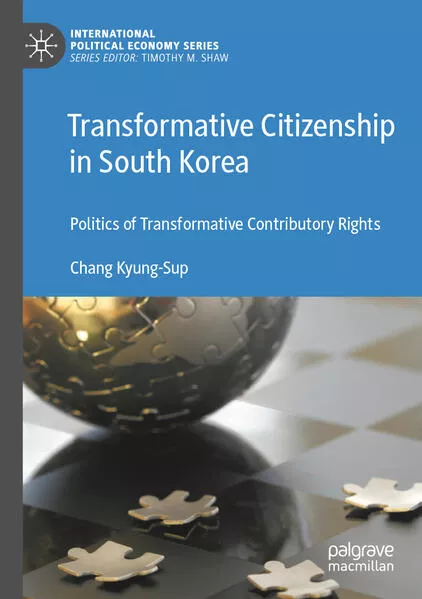
- Publikationen ca: 3
- Buchbewertungen ca: 1
- Fragen & Antworten
Chang Kyung-Sup
Chang Kyung-Sup teaches sociology at Seoul National University, holding Distinguished Professorship.
Transformative Citizenship in South Korea
South Korea’s postcolonial history has been replete with dramatic societal transformations through which it has emerged with a fully blown modernity, or compressed modernity. There have arisen the transformation-oriented state, society, and citizenry for which each transformation becomes an ultimate purpose in itself, its processes and means constitute the main sociopolitical order, and the transformation-embedded interests form the core social identity.
Transformative Citizenship in South Korea
South Korea’s postcolonial history has been replete with dramatic societal transformations through which it has emerged with a fully blown modernity, or compressed modernity. There have arisen the transformation-oriented state, society, and citizenry for which each transformation becomes an ultimate purpose in itself, its processes and means constitute the main sociopolitical order, and the transformation-embedded interests form the core social identity.
Transformative Citizenship in South Korea
South Korea’s postcolonial history has been replete with dramatic societal transformations through which it has emerged with a fully blown modernity, or compressed modernity. There have arisen the transformation-oriented state, society, and citizenry for which each transformation becomes an ultimate purpose in itself, its processes and means constitute the main sociopolitical order, and the transformation-embedded interests form the core social identity.


